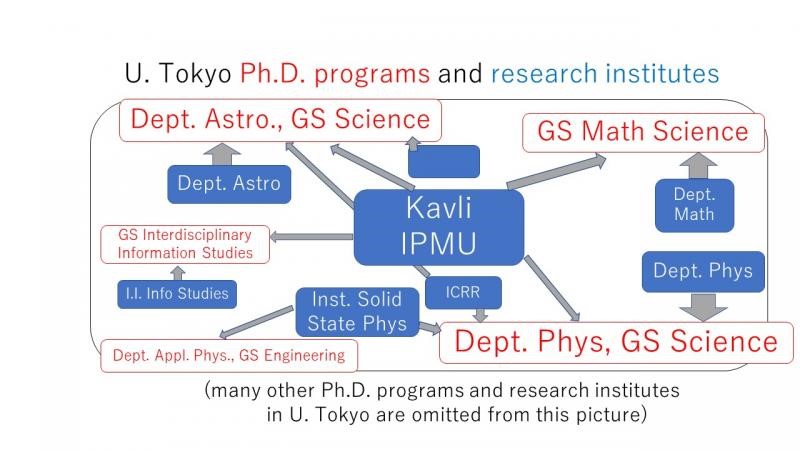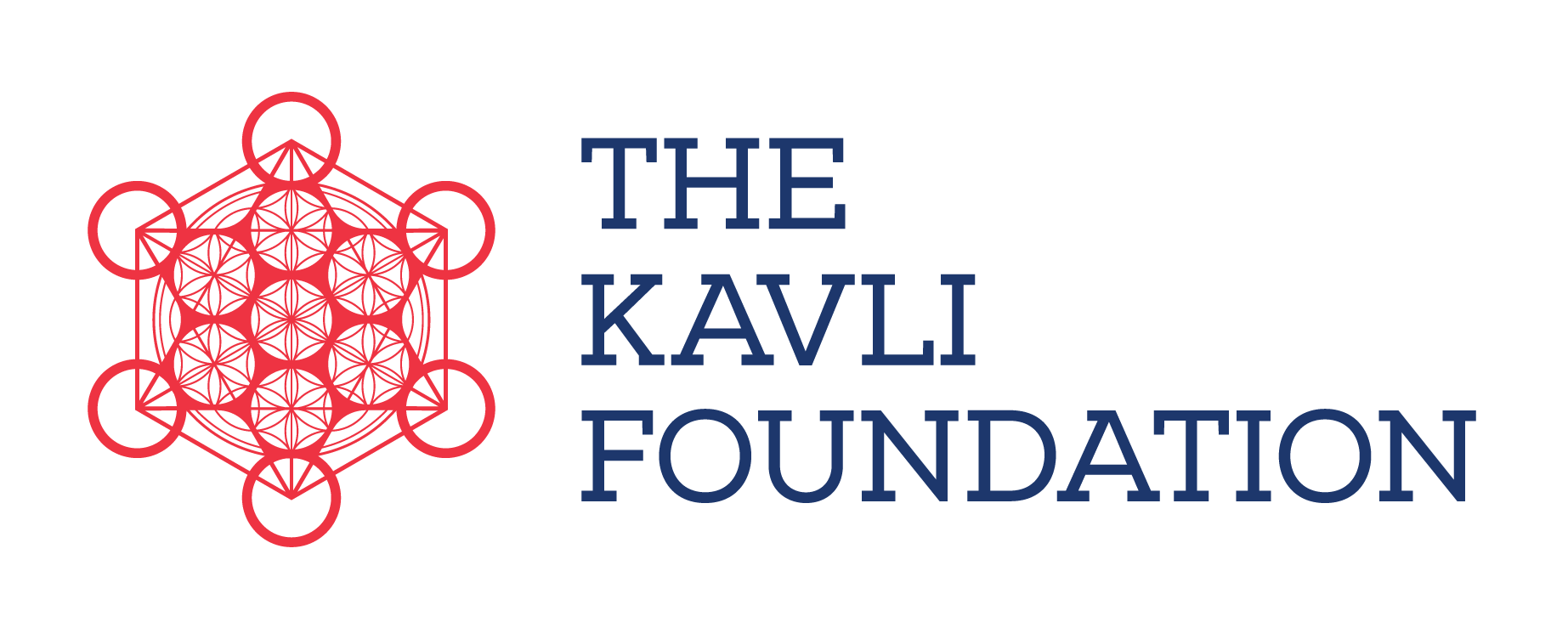Ph.D. Programs at Kavli IPMU (for international students)
Please be aware that this English version (for international students) is different from the Japanese version (for domestic students). For the whole spectrum of research programs at Kavli IPMU (in addition to Ph.D. programs), see Kavli IPMU > Research Activities > Research Programs.
The University of Tokyo Ph.D. Programs
Kavli IPMU hosts Ph.D. students through the following Ph.D. programs of the University of Tokyo: Graduate School of Mathematical Science, Department of Astronomy of Graduate School of Science, Department of Physics of Graduate School of Science, and Graduate School of Interdisciplinary Information Studies. Each Ph.D. program individually runs its admission process, provides class-room lectures, and sets its own criteria for graduation. So, if you are interested in doing Ph.D. study at Kavli IPMU, you are encouraged to apply for one of those programs.
The official page of those Ph.D. programs are here:
Graduate School of Mathematical Science
Department of Astronomy, Graduate School of Science
Department of Physics, Graduate School of Science
Graduate School of Interdisciplinary Information Studies
Department of Physics of Graduate School of Science provides an informal guide that summarizes all the key information.

Kavli IPMU is a research institute in the University of Tokyo. The University of Tokyo research institutes contribute faculty members in support of running Ph.D. programs. For example, Kavli IPMU has about thirty faculty members, several supervise graduate students in Graduate School of Mathematical Science, about ten participate in Department of Physics of Graduate School of Science, and a few members support two other Ph.D. programs.
Graduate School of Mathematical Science
List of faculty members who can host Ph.D. students:
Tomoyuki Abe, Yukari Ito, Mikhail Kapranov, Todor Milanov, Hiraku Nakajima, Yukinobu Toda, Masahito Yamazaki
Department of Astronomy, Graduate School of Science
List of faculty members who can host Ph.D. students: John Silverman
Department of Physics, Graduate School of Science
List of faculty members who can host Ph.D. students:
A1 subcourse (particle theory): Simeon Hellerman, Kentaro Hori, Shigeki Matsumoto, Thomas Melia, Hitoshi Murayama, Yuji Tachikawa, (Satoshi Shirai, Taizan Watari)
A2 subcourse (nuclear experiments, accelerator experiments): Takeo Higuchi
A5 subcourse (cosmology theory and general physics theory ): Masahiro Takada, Naoki Yoshida (joint appointment)
A8 subcourse (cosmology experiments/observations, astroparticle experiments): Kai Martens, Mark Vagins, Tomotake Matsumura
FAQ, common messages on Dept. Phys., GS Science
[Language Policy]
Class-room lectures provided by Department of Physics of Graduate School of Science are delivered in English, even if most students speak Japanese.
["for international students"]
Department of Physics of Graduate School of Science runs two separate admission processes: one for domestic students and the other for international students. The admission process for "domestic students" is explained in the Japanese version of this page. The admission process for "domestic students" requires applicants to come to Tokyo to take a written test, and later to take an oral interview. The written test problem set is available only in Japanese. Domestic student applicants are not required to have Japanese nationality, or hold permanent or temporary resident status.
The admission process for "international students" does not ask the applicants to come to Tokyo; communications can be in English. The admission process for "international students" is open also to Japanese nationals who have graduated from an overseas institution.
See the fine print in the official page of Department of Physics of Graduate School of Science for more information about who qualifies for which admission process. There are some specific restrictions when applying for either option.
[Admission Process]
The outline of the admission process for international students is explained in the informal guide. Particularly important are these two messages: (i) A thesis adviser needs to be specified already during the admission process (not after enrollment), and (ii) the admission process is done in two-stages (preselection by prospective thesis advisers followed by the official selection by Department of Physics of Graduate School of Science).
[Scholarship Options]
See the informal guide (the same page as above).
[Who is open to what? and vacancy information]
Within the admission process for international students, there are still multiple channels of applications (as explained in the informal guide). Department of Physics of Graduate School of Science leaves huge room of discretion to individual faculty members. Some will host international students only through a few channels; some of them will only accept an advisee under the domestic student process. A deadline for application to the preselection may be set by individual faculty members earlier than that of the application to the official selection.
It is possible that a faculty member may already have many students and will not be able to host an additional student starting from the next academic year.
For such information, contact faculty members directly (to find e-mail addresses, visit the individual pages above).
Cultural and human information studies course, Graduate School of Interdisciplinary Information Studies
List of faculty members who can host Ph.D. students: Hiromi Yokoyama
See HERE for admission information.






